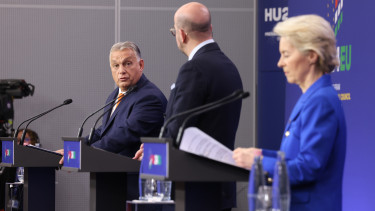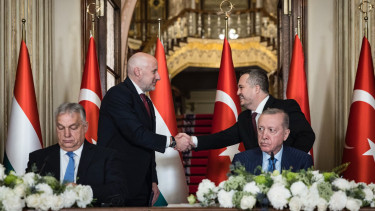COVID-19 pandemic is a humanitarian crisis, EU to expedite provision of aid
The Communication proposes a series of key actions to expedite the provision of humanitarian aid by expanding the resource base, supporting a better enabling environment for humanitarian partners and addressing the root causes of crises through a ‘Team Europe' approach. It highlights a renewed focus on international humanitarian law (IHL) and also sets out to tackle the dramatic humanitarian impact of climate change.
Today, the average humanitarian crisis lasts more than nine years, some even longer, said High Representative/Vice President, Josep Borrell. He pointed to many risk being 'forgotten' such as Yemen or Syria, stressing that "the EU does not forget."
Humanitarian aid is one of the most tangible examples of the EU's external action and proof of our solidarity.
"Respect for International Humanitarian Law must be at the heart of our foreign policy more than ever to support principled humanitarian action and to protect civilians as well as the humanitarian workers who risk their lives to protect them around the world,” he added.
"In a world where the footprint of crises is expanding rapidly and the principles of humanitarian aid are being challenged as rarely before,
the EU's global responsibility as a humanitarian actor has never been more important
, commented Commissioner for Crisis Management, Janez Lenarčič.
Under the proposal, the EU will set up a new European Humanitarian Response Capacity in order to intervene directly in humanitarian crises, when traditional humanitarian delivery mechanisms via EU partners or their capacities may be ineffective or insufficient. This will aim to facilitate logistics including transport, enabling the pooling of resources and facilitating their deployment in the field.
Direct and often deliberate attacks by belligerents against civilians, hospitals and schools in violation of international humanitarian law are increasing. In 2019, 277 attacks against humanitarian aid workers, with 125 killed, were reported. The EU will therefore put compliance with international humanitarian law even more firmly at the heart of EU external action to protect civilian populations.
Concretely, the EU will:
- consistently monitor IHL violations;
- reinforce due diligence across all EU external instruments;
- continue ensuring that IHL is fully reflected in EU sanctions policy including through the consistent inclusion of humanitarian exceptions in EU sanction regimes.
Humanitarian aid on its own cannot tackle the complex underlying drivers of conflicts and other crises. The EU will therefore scale up its urgent relief efforts by closely delivering together with development and peace-building actors tackling the root causes of crisis and promoting long-term solutions for humanitarian emergencies.
Cover photo: Getty Images








